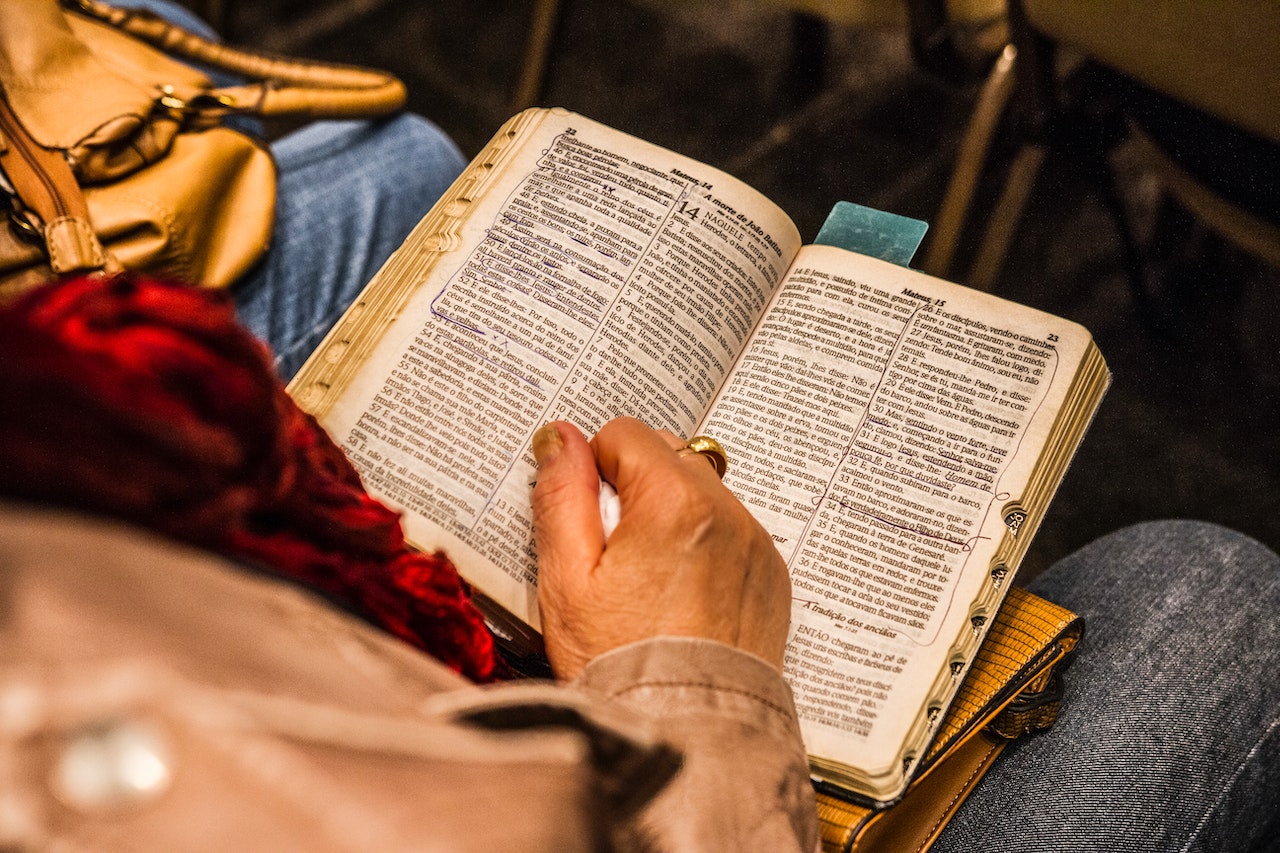In some cultures and religions, marrying cousins is considered acceptable or even encouraged. However, in Christianity, the practice of marrying cousins is a topic of debate and controversy. Let’s explore the different perspectives on whether Christians can marry their cousins.
Table of Contents
Genetic Risks of Cousin Marriage in Christianity
Have you ever wondered if it’s okay for Christians to marry their cousins? This is a question that has sparked debate and discussion among believers for centuries. While some may argue that cousin marriage is taboo or even sinful, others believe that it is perfectly acceptable within the bounds of Christian faith. In this article, we will explore the genetic risks associated with cousin marriage in Christianity and shed some light on this controversial topic.
First and foremost, it’s important to understand that cousin marriage is not explicitly forbidden in the Bible. In fact, there are several examples of cousin marriage in the Old Testament, including the unions of Jacob and Rachel, and Ruth and Boaz. These unions were not only accepted but also blessed by God, indicating that cousin marriage is not inherently sinful.
However, when it comes to the genetic risks of cousin marriage, things become a bit more complicated. One of the primary concerns with cousin marriage is the increased likelihood of genetic disorders and birth defects in offspring. This is due to the fact that cousins share a higher percentage of genetic material than unrelated individuals, which can increase the chances of inherited genetic conditions being passed down to their children.
Despite these risks, it’s important to note that the actual likelihood of birth defects in cousin marriages is relatively low. According to studies, the risk of birth defects in cousin marriages is only slightly higher than that of the general population. This means that while there is a slightly elevated risk, it is not significant enough to warrant a blanket prohibition on cousin marriage within the Christian community.
Furthermore, it’s worth mentioning that advances in genetic testing and counseling have made it easier for couples to assess their risk of passing on genetic disorders to their children. By undergoing genetic testing before marriage, couples can gain valuable information about their genetic compatibility and make informed decisions about their future family planning.
In addition to genetic risks, another concern that is often raised in relation to cousin marriage is the potential for social stigma and discrimination. In some cultures and communities, cousin marriage is still viewed as taboo or even incestuous, which can lead to ostracism and judgment from others. This can put a strain on the relationship and create unnecessary stress for the couple.
Despite these challenges, it’s important for Christians to approach the topic of cousin marriage with an open mind and a spirit of discernment. While there are valid concerns to consider, it’s also important to remember that every relationship is unique and should be judged on its own merits. As long as the couple is committed to each other and willing to take the necessary precautions, there is no reason why cousin marriage cannot be a viable option for Christians.
In conclusion, the question of whether Christians can marry their cousins is a complex and nuanced issue that requires careful consideration. While there are genetic risks associated with cousin marriage, these risks can be mitigated through genetic testing and counseling. Ultimately, the decision to marry a cousin should be made prayerfully and with the guidance of trusted advisors. As long as the couple is committed to each other and willing to take the necessary precautions, there is no reason why cousin marriage cannot be a valid and fulfilling option for Christians.
Biblical Perspectives on Cousin Marriage
Have you ever wondered if it’s okay for Christians to marry their cousins? This is a question that has sparked debate and discussion among believers for centuries. While the Bible does not explicitly forbid cousin marriage, there are some important considerations to keep in mind when thinking about this topic.
One of the key things to remember is that the Bible does not specifically address cousin marriage. In fact, there are several examples of cousin marriage in the Bible, such as Jacob marrying his cousin Rachel. This has led some to argue that cousin marriage is not inherently sinful or wrong.
However, it’s important to consider the cultural context in which these marriages took place. In ancient times, cousin marriage was much more common and socially acceptable than it is today. In many cultures, marrying a cousin was seen as a way to keep wealth and property within the family, as well as to strengthen family ties.
In modern times, cousin marriage is much less common and is often viewed with suspicion or even disgust. This is due in part to concerns about genetic disorders that can result from close relatives marrying and having children. Studies have shown that the risk of birth defects is higher in children born to first cousins compared to those born to unrelated parents.
From a biblical perspective, the key issue to consider when thinking about cousin marriage is the principle of loving your neighbor as yourself. This principle is central to the teachings of Jesus and is found throughout the Bible. When considering whether or not to marry a cousin, it’s important to think about how this decision will affect not only you and your cousin, but also your families and any children you may have.
Another important consideration is the potential impact of cousin marriage on your relationship with God. While the Bible does not explicitly forbid cousin marriage, it does caution against anything that could lead us away from God or cause harm to ourselves or others. It’s important to prayerfully consider whether marrying a cousin is in line with God’s will for your life and your relationship with Him.
Ultimately, the decision of whether or not to marry a cousin is a personal one that should be made prayerfully and with careful consideration. It’s important to seek wise counsel from trusted friends, family members, and spiritual leaders, and to carefully weigh the potential risks and benefits of cousin marriage.
In conclusion, while the Bible does not explicitly forbid cousin marriage, there are important considerations to keep in mind when thinking about this topic. It’s important to consider the cultural context in which cousin marriage takes place, as well as the potential impact on your relationship with God and others. Ultimately, the decision of whether or not to marry a cousin is a personal one that should be made prayerfully and with careful consideration.
Cultural Views on Cousin Marriage Among Christians

Have you ever wondered if it’s okay for Christians to marry their cousins? This is a topic that has sparked debate and discussion among believers for centuries. While some cultures and religions have strict rules against cousin marriage, others have more lenient views on the matter. In this article, we will explore the cultural views on cousin marriage among Christians.
In many Western cultures, cousin marriage is generally frowned upon and even considered taboo. This attitude can be traced back to the teachings of the Catholic Church, which has historically discouraged cousin marriage. The Church’s stance on the issue is based on the belief that marrying a close relative can lead to genetic disorders and other health problems in offspring. As a result, many Christians in Western societies have adopted a similar view and choose not to marry their cousins.
However, not all Christians share this perspective. In some Eastern cultures, cousin marriage is not only accepted but also encouraged. In fact, many Christian communities in the Middle East and Asia have a long history of cousin marriage. This practice is often seen as a way to strengthen family ties and preserve cultural traditions. In these cultures, marrying a cousin is considered a sign of loyalty and commitment to one’s family.
So, where does the Bible stand on the issue of cousin marriage? Surprisingly, the Bible does not explicitly forbid or endorse cousin marriage. While there are passages that discourage incestuous relationships, such as Leviticus 18:6-18, cousin marriage is not specifically mentioned. This has led to differing interpretations among Christians, with some believing that cousin marriage is acceptable as long as it is done with the right intentions and within the bounds of the law.
Ultimately, the decision to marry a cousin is a personal one that should be made prayerfully and with careful consideration. It is important for Christians to seek guidance from their faith community and spiritual leaders when grappling with this issue. While cultural norms and societal expectations may play a role in shaping our views on cousin marriage, it is ultimately up to each individual to discern what is right for them and their future spouse.
In conclusion, the question of whether Christians can marry their cousins is a complex and nuanced one. While some cultures and religions have strict rules against cousin marriage, others have more lenient views on the matter. Ultimately, the decision to marry a cousin should be made with careful consideration and prayerful discernment. By seeking guidance from our faith community and spiritual leaders, we can navigate this issue with wisdom and grace.
Historical Practices of Cousin Marriage in Christian Communities
Have you ever wondered if Christians can marry their cousins? It’s a question that has sparked debate and discussion among believers for centuries. While the Bible does not explicitly forbid cousin marriage, there are differing opinions on whether it is acceptable within Christian communities.
Historically, cousin marriage was quite common among Christians. In fact, many prominent figures in the Bible married their cousins. For example, Isaac, the son of Abraham, married his cousin Rebekah. Similarly, Jacob, the grandson of Abraham, married his cousins Leah and Rachel. These unions were not only accepted but also seen as a way to keep wealth and property within the family.
In medieval Europe, cousin marriage was also prevalent among royalty and nobility. It was often used as a way to strengthen political alliances and consolidate power. In some cases, cousins were even forced to marry each other to maintain the purity of the royal bloodline.
However, as society evolved and scientific knowledge advanced, attitudes towards cousin marriage began to change. In the 19th and 20th centuries, many Christian denominations started to discourage or even prohibit cousin marriage. This shift was influenced by concerns about genetic disorders and the potential harm to offspring born from closely related parents.
Today, the practice of cousin marriage varies among different Christian communities. Some denominations still allow and even encourage cousin marriage, while others strongly discourage it. Ultimately, the decision to marry a cousin is a personal one that should be made prayerfully and with careful consideration.
For those who are considering marrying their cousin, it is important to seek guidance from trusted spiritual advisors and medical professionals. They can provide valuable insight and advice on the potential risks and benefits of cousin marriage. It is also essential to consider the cultural and legal implications of marrying a cousin, as laws regarding cousin marriage vary from country to country.
In conclusion, the question of whether Christians can marry their cousins is a complex and nuanced issue. While cousin marriage has been practiced throughout history, attitudes towards it have evolved over time. Ultimately, the decision to marry a cousin should be made thoughtfully and prayerfully, taking into account both personal beliefs and practical considerations.
Regardless of the stance one takes on cousin marriage, it is important to approach the topic with an open mind and a spirit of love and understanding. After all, we are called to love one another as Christ loved us, regardless of our differences or disagreements. So whether you choose to marry your cousin or not, remember to do so with love and respect for yourself and others.
Modern Legal and Ethical Considerations for Christians Marrying Cousins
Have you ever wondered if it’s okay for Christians to marry their cousins? In today’s modern society, the idea of marrying a cousin may seem taboo or even frowned upon by some. However, when it comes to the legality and ethics of cousin marriage, there are a few important factors to consider.
First and foremost, it’s essential to understand that the Bible does not explicitly forbid cousin marriage. In fact, many prominent figures in the Bible, such as Abraham and Sarah, were cousins who married each other. This suggests that cousin marriage was not uncommon in biblical times and was generally accepted within the culture.
From a legal standpoint, cousin marriage is legal in many states in the United States and in many countries around the world. However, there are some restrictions and regulations in place to prevent close relatives from marrying each other. For example, some states prohibit first cousins from marrying, while others allow it with certain conditions.
When it comes to the ethics of cousin marriage, opinions may vary among Christians. Some may argue that marrying a cousin is morally wrong due to concerns about genetic disorders or the potential for unhealthy family dynamics. Others may believe that as long as the couple is in love and committed to each other, there is no issue with marrying a cousin.
It’s important to consider the potential risks and benefits of cousin marriage before making a decision. One of the main concerns with cousin marriage is the increased risk of genetic disorders in offspring. When close relatives have children together, there is a higher chance of passing on genetic mutations that can lead to health problems. However, this risk can be mitigated through genetic testing and counseling.
On the other hand, cousin marriage can also have some benefits. Couples who are already familiar with each other may have a stronger bond and a deeper understanding of each other’s values and beliefs. Additionally, marrying a cousin can help preserve family traditions and strengthen family ties.
Ultimately, the decision to marry a cousin is a personal one that should be made with careful consideration and prayer. It’s important to seek guidance from trusted family members, friends, and spiritual leaders to help navigate the complexities of cousin marriage.
In conclusion, while cousin marriage may not be as common or widely accepted as it once was, it is still a legal and ethical option for Christians. By weighing the potential risks and benefits and seeking counsel from others, couples can make an informed decision about whether cousin marriage is right for them. Remember, love and commitment are the most important factors in any marriage, regardless of familial relationships.
Conclusion
In conclusion, while there is no specific prohibition against cousins marrying in the Bible, Christians should consider the potential genetic risks and societal implications before entering into a marriage with a cousin. It is important to seek guidance from trusted spiritual advisors and medical professionals before making such a decision.
For licensing reasons, we must provide the following notice: This content was created in part with the help of an AI.


